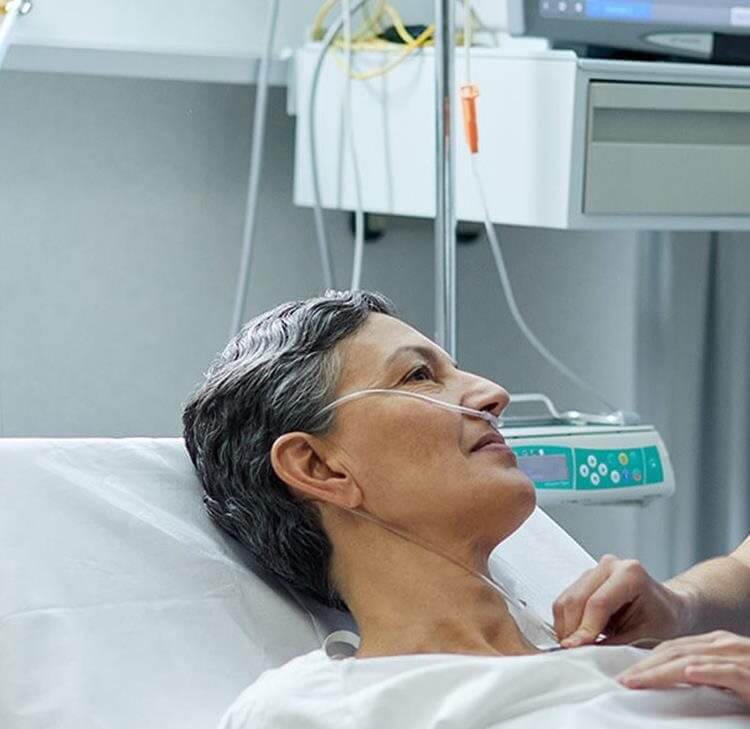Coroners have an important patient safety role under Regulation 28 of the Coroner’s (Investigations) Regulations 2013. This creates a statutory duty for Coroners not just to decide how somebody came by their death but also, where appropriate, to report about that death with a view to preventing future deaths (PFD report).
In certain cases you may wish to provide the Coroner with evidence to explain the outcome of any internal investigation and provide assurance that organisational learning has been, or is being, implemented. This guide has been produced to assist with the preparation of that evidence, and supplements our previous 'inquest guide for witnesses' and 'guide to writing statements for an inquest'.
Section 1: When does the Coroner hold an inquest?
The Coroner has a duty to investigate a death where:
- The cause of death is unknown.
- The death occurred in custody or state detention, which will include deaths in prison or police custody and deaths while the deceased was detained under the Mental Health Act 1983.
- The death is violent, including self-harm.
- There is reasonable cause to suspect that the death is unnatural. This will include deaths that were more than minimally contributed by medical treatment or a procedure, for example:
- The death was due to a recognised complication of medical treatment
- Shortcomings in the medical treatment more than minimally contributed to the death.
Section 2: What is an inquest?
An inquest is a fact finding investigation process led by the Coroner to establish the answer to four statutory questions:
- Who the deceased was.
- Where the deceased died.
- When the deceased died.
- How the deceased died. In an ordinary inquest this is understood narrowly as meaning "by what means" the deceased died circumstances”.
We usually know who has died and when and where the death occurred. Inquests usually focus on ‘how’ the person died. This goes beyond establishing the medical cause of death. It is not the Coroner’s role to apportion blame and the Coroner’s Conclusion will not name any individual or organisation as being negligent or criminally liable for the death. However, during the inquest the Coroner will scrutinise the evidence of the medical treatment that the patient received and will explore whether there were any delays or shortcomings in care which (on a balance of probabilities) have more than minimally contributed to the death.
Section 3: What is a report to prevent future deaths?
Coroners have a duty not just to decide how somebody came by their death but also, where appropriate, to report about that death with a view to preventing future deaths. A bereaved family wants to be able to say: ‘His death was tragic and terrible, but at least it shouldn’t happen to somebody else.’
Where the Coroner’s investigation gives rise to concern that there is a risk of deaths occurring in the future and the Coroner is of the opinion that action should be taken to reduce the risk of death, the Coroner has a statutory duty to send a report to Prevent Future Deaths (PFD report) under Regulation 28 of the Coroner’s (Investigations) Regulations 2013. The Chief Coroner has published Guidance on Reports to Prevent Future Deaths, which stipulates that:
- “PFD reports should be intended to improve public health, welfare and safety. They should not be unduly general in their content; sweeping generalisations should be avoided. They should be clear, brief, focused, meaningful and, wherever possible, designed to have practical effect… they are about learning.”
- The matter raised in the PFD does not have to have been causative of the death under investigation.
- There is a template document for making a PFD report attached at Annex A to the Chief Coroner’s Guidance.
- The PFD report will set out the details of the Coroner’s concerns, but it is not for the Coroner to dictate precisely what action should be taken or prescribe solutions. A PFD report raises issues and is a recommendation that action should be taken but it should not state what that action should be. That remains a matter for the person or organisation to whom the PFD is directed.
- The PFD report will be sent to the person or authority that has the power to take action to reduce the risk of future deaths. It should be sent within 10 days of the inquest (or in exceptional cases where a concern is identified before the inquest, within 10 days of that concern being identified by the Coroner).
- A response must be submitted to the Coroner within 56 days of receipt of the PFD report. This must detail the action taken or to be taken, whether in response to the report or otherwise, and the timetable for it, or it must explain why no action is proposed.
• The PFD report and the response are public documents. They will be shared with the family and will also be shared with other organisations and regulators such as the Care Quality Commission, the Department of Health and Social Care, the Health and Safety Investigation Branch, HM Inspectorate of Prisons etc so that wider lessons can be learnt.
• PFD reports and responses are published here, and can be filtered by subject and/or date.
Regulation 28 creates a statutory duty and the Coroner does not have any discretion if that duty is triggered: where an investigation (including inquest) gives rise to a concern that future deaths will occur and the Coroner is of the opinion that action should be taken to reduce the risk of future deaths then the Coroner MUST make a PFD report.
In exceptional circumstances, the Coroner may wish to draw attention to a matter of concern even where the statutory duty to make a PFD report does not arise. The usual reason that no duty to make a PFD arises is because the matter does not relate to a risk of future deaths. In these circumstances, the Coroner may write a letter which does not have the status of a formal PFD report but raises the concern to the relevant person or organisation. As with a PFD report, any letter must identify clearly the specific element of concern. Writing a letter instead of a report is an exceptional course of action. If the subject matter relates to the prevention of future deaths, writing a PFD report is the default position.
Section 4: Organisational learning evidence
Providing evidence of organisational learning at an inquest is important. The Chief Coroner’s Guidance states that in considering whether they are under a duty to make a PFD report, Coroners should focus on the current position i.e. at the date of inquest and not at the date of death. The Chief Coroner’s Guidance states that the Coroner should consider evidence and information about relevant changes made since the death or plans to implement such changes and goes on to state that:
- If a potential PFD recipient has already implemented appropriate action to address the risk of future fatalities, the Coroner may not need to make a PFD report to that body.
- In other cases, action may not yet have been fully implemented by the potential PFD recipient, but such action may be ongoing, or the Coroner may be told that a decision has been taken to take specific action in the near future. The Chief Coroner’s Guidance states that whether a PFD report is required in these cases will be highly fact sensitive, depending upon the circumstances of each individual case. Relevant factors may include the nature of the commitment to take action, any evidence in support of it, and the Coroner’s assessment of the organisation’s understanding of, and commitment to addressing, the area of concern.
- In addition, the Chief Coroner states that “The Coroner may be assisted by considering the potential recipient in the context of any other PFDs sent to that individual or organisation. The Coroner is a local judge and is able to consider local trends”.
PFD reports are not intended as a punishment; they are made for the benefit of the public. However, if an organisation has already made or is committed to making changes then it is obviously preferable to provide the Coroner with evidence to demonstrate this and avoid a PFD report if possible.
For this reason, in complex cases where there have been shortcomings in care an organisation will often disclose written evidence in advance of the inquest, to provide the Coroner with assurance that their statutory duty to issue a PFD report is not triggered. This may take the form of an internal investigation report or an organisational learning report to the Coroner from someone senior, setting out relevant changes made since the death or plans to implement such changes.
Section 5: The relevance of other investigations at the inquest
Some deaths that are investigated by the Coroner will also be subject to other investigations. For healthcare providers, this may include an internal investigation such as:
- Investigation in response to a complaint by the family.
- Investigation under the Patient Safety Incident Response Framework (PSIRF), resulting in a PSII Report or some other form of PSIRF learning response such as a Swarm Huddle or MDT.
- Discussion of the case at internal meetings through the organisation’s usual governance processes.
Some deaths may also result in a police investigation and if that is the case the inquest will usually be adjourned until that police investigation is completed.
Different types of death may also trigger other external investigations, for example:
- Some early neonatal deaths, intrapartum stillbirths and maternal deaths will be investigated by the Maternity and Newborn Safety Investigations Programme (formerly HSIB).
- Deaths in custody will be investigated by the Prison and Probation Ombudsman.
- Deaths resulting from serious workplace accidents, occupational diseases and specified dangerous occurrences may result in investigation by the Health and Safety Executive.
Most Coroners will refer to these investigations and reports when considering their statutory duty under Regulation 28. For that reason, if an investigation is being undertaken following a death it is important to notify the Coroner that this investigation is underway and to provide a timescale within which the investigation will be completed and the outcome/report will be disclosed to the Coroner.
To mitigate the risk of a PFD report, it is preferable to conclude any internal investigation before the inquest hearing so that you can share the report and resultant Action Plan with the Coroner as evidence of organisational learning. If this is not possible, the Coroner should be notified as soon as possible and you should provide a realistic revised timescale for the report being completed.
The timetable for the investigation remains a matter for your organisation and cannot be dictated by the Coroner. The Coroner may decide to proceed with the inquest despite the fact that the internal investigation has not concluded and is not under an obligation to wait for this before listing the inquest for hearing.
Section 6: Preparing an organisational learning report for the Coroner
In some cases, a senior clinician or manager may be tasked with drafting a report setting out evidence of organisational learning for the Coroner.
If you are asked to prepare an organisational learning report to the Coroner, you MUST ensure that you have reviewed all of the relevant documents before you begin drafting your report. These will include:
- The deceased’s medical records.
- The Post Mortem Report.
- Witness statements and reports previously submitted to the Coroner in relation to this inquest.
- Local and national policies in place at the relevant time (including NICE Guidance).
- Any relevant external investigation reports.
- For health organisations, the organisation’s risk profile as set out in its Patient Safety Incident Response Plan (PSIRP).
- Previous PFD reports issued by the Coroner to your organisation, which you can find by searching against your organisation’s name. The Chief Coroner’s Guidance is clear that the Coroner will consider local trends and the context of any other PFDs sent to your organisation.
- Any relevant internal investigation reports e.g. the PSII Report or other PSIRF learning responses, such as notes of a Swarm Huddle or MDT discussion of the case.
- Any statements or other documents generated during any internal investigation.
- Any PALS/complaints documents.
- Minutes of internal meetings where the case was discussed.
- Audit or other data that is relevant to the death.
- The Action Plan arising out of any internal or external investigation into the death.
This list is not exhaustive – you should take the time to locate all of the documents that may be relevant to the Coroner’s investigation and read them carefully. Remember that all of these documents are disclosable to the Coroner and he or she is likely to refer to them in court. All parties to an inquest are under a duty of disclosure, this means that any documents that are relevant to the Coroner’s investigation must be sent to the Coroner. Medical records, investigation reports, guidelines, organisation polices etc. are all sent if relevant. The Coroner will also search for relevant national guidance. You should ensure that you have reviewed these carefully prior to drafting your organisational learning report, to ensure you have all the relevant information before you put pen to paper. You do not want to be ambushed with new information for the first time in court and realise at that stage that your report does not address all of the issues. For this reason, it is crucial that you make sure you have read through all of the relevant documents before you begin drafting any organisational learning report to the Coroner.
Section 7: The format of your organisational learning report to the Coroner
The content and format of your report will be case specific. Generally, we recommend that you format your organisational learning report as follows:
- Use numbered paragraphs throughout your report and make sure each page is clearly numbered. This assists others when reviewing your statement and will also help you to navigate your statement if you are called to court to give evidence.
- Write in the first person, as this is a statement which is coming directly from you as its author.
- Begin your statement by setting out your name, job title, qualifications and experience.
- Describe your involvement with the deceased (were you involved in their care?) and the purpose of your report e.g. “I have prepared this report to assist the Coroner at the inquest into the death of Mr X. I was not involved in Mr X’s care and treatment. I have prepared this report to set out the findings of the Trust’s internal investigations and the actions taken as a result of that investigation to implement organisational learning”.
- List the documents you have reviewed prior to drafting your report.
- Turning to the main body of your report, you may wish to structure this into two sections:
- Factual overview - generally speaking, the Coroner will be assisted by an accurate overview of the key facts of the case. Your report should make the source of your information clear.
- Investigation and Action Plan – the second section of your report will then focus on the investigation findings and the resultant Action Plan to address the learning from the death.
- Conclude by express condolences to the family.
- Sign and date the statement of truth - “I believe the facts stated in this statement are true to the best of my knowledge and belief”.
Remember this is your statement and you must be completely comfortable that it is truthful, accurate and includes all of the relevant information. Only sign and date the statement of truth once you are happy that it reflects your final evidence to the Coroner.
Section 8: The content of your organisational learning report to the Coroner
Your organisational learning report to the Coroner should be accurate and detailed. The aim is to provide assurance that the organisation has already implemented appropriate action to address the risk of future fatalities or at least to provide assurance that there is a robust action plan in place and a firm commitment to implementing this within a clear timescale.
When drafting your organisational learning report, the content will depend very much on the facts of the case and the issues identified by any investigation into the death. You may wish to:
- Set out full details of the findings of the investigation and the resultant learning, ideally with reference to an Action Plan which is exhibited to the report.
- Action Plans should contain recommendations which are clear, have a named owner and timescale for completion. Consider ways that the learning can be measured to provide assurance that implementation has been achieved and is driving measurable improvement (audits/reviews).
- Consider whether the relevant Trust policies, systems and processes are robust and fit for purpose?
- If not, explain what changes have been made and what difference these changes will make in the future. How can you provide assurance that these changes have been implemented effectively?
- If there were policies, systems and processes in place at the time but they were not followed in this case, what steps can be taken to reduce the risk of this happening again in the future?
- Check whether there were issues with staffing or acuity which more than minimally contributed to the death?
- If learning has not yet taken place or is yet to be implemented then realistic timescales for this being undertaken should be provided. It may also be appropriate to offer to provide the Coroner with an update on progress following the inquest.
- Remember to consider all matters which may give rise to a risk of deaths occurring in the future, not just factors that were causative of the death under investigation. For example, if there has been a serious failure in an organisation’s governance and investigative process, this could have an impact upon the ability to learn from one death and so avoid other deaths. This in itself can result in a PFD report, even if it was not a factor in this specific death.
These points are not exhaustive: the content of your organisational learning report will be case specific and so you will need to think carefully about the issues which could trigger the Coroner’s statutory duty to issue a PFD report and seek to provide assurance in your report that these have been identified and addressed by the organisation.
It will be important to involve all of the factual witnesses in the process of preparing this evidence for the Coroner, to ensure that it does address all of the issues raised by those witnesses and that they are aware of the actions and learning and are in agreement with it before the report is sent to the Coroner.
Section 9: Giving oral evidence at the inquest
In cases where there have been shortcomings in care, the Coroner will explore organisational learning with witnesses during the inquest and it is important that all witnesses are prepared to answer questions about lessons learned and changes made since the death.
The Coroner may call the author of the Investigation report or Organisational Learning Report to give oral evidence at the inquest. That witness will need to be familiar with the investigation report, the Action Plan and all of the other relevant documents in advance of the inquest. That witness will need to explain the findings of any investigation, the actions taken and planned to address organisational learning. The witness may be asked: are you able to provide an assurance that all reasonable steps have been taken to address the learning from this case and reduce the risk of recurrence.
However, the Coroner will not limit these questions to the organisational learning witness. It is important that all witnesses are prepared to answer questions about lessons learned from a death and the steps that have been taken to address these.
Section 10: After the inquest
When an organisation states in evidence to the Coroner that it has (or intends to) implement change or learning following an investigation, it is important that the change or learning is implemented unless there is a good reason for not doing so. If another death occurs in similar circumstances and the organisation has failed to implement the learning (or chosen not to), then this could have serious consequences for the organisation involved. In circumstances where a decision has been made not to proceed with a proposed change or learning, the reason for this decision should be documented so it can be produced in evidence in future similar coroners' inquests.
Section 11: Further resources
- The case of Dillon is a useful read when considering the law in relation to PFD Reports.
- For more tips on writing reports, please see our Guide to Writing Statements for an Inquest.
- For information on the inquest process and tips for giving oral evidence, please see our Inquest Guide for Witnesses.
- Resources produced by NHS Resolution for witnesses preparing for inquest can be found here.
- The Ministry of Justice guide to the coroner service.
- For those working in maternity services, you may wish to view our mock neonatal inquest films on our Maternity Resources Hub.
- See notes from previous Shared Insights sessions and register to join future sessions.
Contact

Mark Hickson
Head of Business Development
onlineteaminbox@brownejacobson.com
+44 (0)370 270 6000
Related expertise
Key contacts

Mark Barnett
Partner

Ed Pollard
Partner

Nicola Evans
Partner

Heather Caddy
Partner

Catherine Flannery
Senior Associate

Katharyn Johnston
Senior Associate (Australian Qualified)

William Morris
Associate
You may be interested in...
Published Article
Prevention of future deaths reports: A guide for independent providers
Online Event - Shared Insights
Shared Insights: 10 years on from Montgomery - Shared decision making and consent
Legal Update
A review of mental health related Prevention of Future Deaths reports: What can healthcare providers learn?
On-Demand - Shared Insights
Shared Insights: Coroner's Question Time
Legal Update - Maternity services
Improving maternity care for recent migrant women with language barriers
Opinion
Reports to Prevent Future Deaths: Themes related to acute hospitals and emergency services
Online Event - Care Focus webinar series
Care Focus: Critical incident - Inquest
Training
Mock inquest training course
On-Demand - Shared Insights
Shared Insights: CQC enforcement and prosecution in the health and care sector
Guide
Guide to inquests for mental health patients
Legal Update
Death certification reform in England and Wales: How will health and social care be affected?
On-Demand - Shared Insights
Shared Insights: Insights from the Chief Coroner of England and Wales
On-Demand - Shared Insights
Shared Insights: Focus on maternity and neonatal safety
On-Demand - Shared Insights
Shared Insights: Coroner's question time
Opinion
Inquiry into the coroner service halted – so what next?
On-Demand - Shared Insights
Shared Insights: Preparing and delivering organisational learning evidence in the Coroner’s Court
Legal Update
Death certification reform in England and Wales – how will healthcare providers and commissioners be affected?
Opinion - Maternity services
Coronial investigations of stillbirths - summary of consultation responses
On-Demand - Shared Insights
Shared Insights: Improving communication with families through the inquest process
On-Demand - Shared Insights
Shared Insights: Coroners Question Time
On-Demand - Shared Insights
Mock inquest: Guide to giving evidence remotely at a coroner’s inquest
Guide
Guide to preparing and delivering evidence of organisational learning to the Coroner
On-Demand - Shared Insights
Shared insights: Mental Capacity
Legal Update
Improving patient safety incident and complaint responses to rebuild broken trust
On-Demand - Shared Insights
Shared Insights: Coroner’s Question Time
Legal Update
Inquests and Article 2 of the ECHR: A practical guide following the case of Maguire
Legal Update
Learning from Reports to Prevent Future Deaths in Mental Health settings - A Review of PFDs nationally 2022-2023
Legal Update
Reports to Prevent Future Deaths: What are the issues affecting ambulance trusts nationally?
Guide
Guide to writing statements for an inquest
Guide
Guide to the coroners' inquest process for witnesses
On-Demand - Shared Insights
Shared Insights: PSIRF and what it means for independent providers
On-Demand - Shared Insights
Shared Insights: Coroners’ Question Time
Legal Update - Public matters newsletter
Public matters - January 2023
Opinion
Coroner’s refusal to issue a Prevention of Future Deaths Report following death in prison custody inquest was lawful
On-Demand
Insights from the Chief Coroner by His Honour Judge Thomas Teague, KC
On-Demand - Shared Insights
Shared Insights: Focus on emergency medicine
Guide
Checklist for taking part in a remote inquest hearing
Legal Update
Health and Care Regulation – The Present and the Future
In this article, we discuss some of the themes we have seen in recent CQC regulation as well as providing an update on the development of their new assessment framework. I will also highlight other key developments in the sector that all providers should be aware of.






































